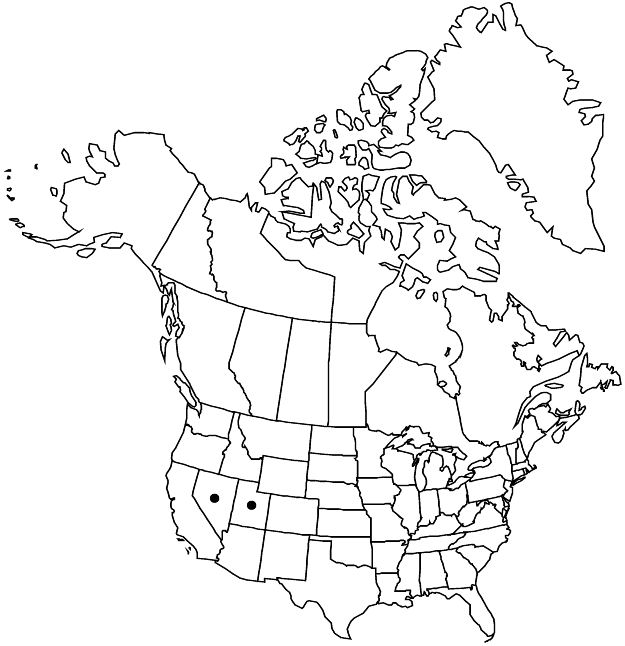Potentilla cottamii
Brittonia 39: 340, fig. 1. 1987.
Short hairs not well differentiated from long hairs, absent or sparse throughout. Stems 0.4–1.7 dm. Basal leaves ternate, (1.5–)2–6(–8) cm; petiole 0.8–5(–7) cm, long hairs sparse to abundant, usually ± spreading, sometimes ascending, 0.5–1 mm, weak to ± stiff, glands sparse to common; leaflets 3, central obovate-cuneate, (0.2–)0.5–1(–1.5) × 0.2–1 cm, scarcely petiolulate, distal 1/2–2/3 of margins evenly incised 1/3–1/2 to midvein, teeth (1–)2–3(–4) per side, surfaces green, long hairs sparse to common, 0.5–1 mm, glands sparse to abundant. Inflorescences 1–4-flowered. Pedicels 0.5–2(–4) cm. Flowers: epicalyx bractlets sometimes paired, narrowly elliptic, 1.5–2(–2.5) × 0.5–1 mm 1/2–3/4 as long as sepals; hypanthium 2–3 mm diam.; sepals 2.5–4 mm, apex broadly acute; petals ± paler abaxially, bright yellow adaxially, ± obcordate to broadly obovate, (2–)3–4 × 2–3 mm; filaments 1–1.5 mm, anthers 0.3–0.5 mm; carpels 10–25, styles 1–1.5 mm. Achenes 1.3 mm, smooth to lightly rugose.
Phenology: Flowering Jun–Aug.
Habitat: Protected rock crevices, near vertical faces of quartzite and granite
Elevation: 2200–3600 m
Discussion
Of conservation concern.
Potentilla cottamii is known only from the Pilot Range, Elko County, Nevada, and in northwestern Utah from the Deep Creek, Raft River, and Stansbury mountains. Plants of P. cottamii can form dense clumps to 4 dm across. Except for the short style, which led Holmgren to associate the species with P. hyparctica and P. robbinsiana in sect. Aureae, P. cottamii fits well in sect. Subviscosae.
Selected References
None.
